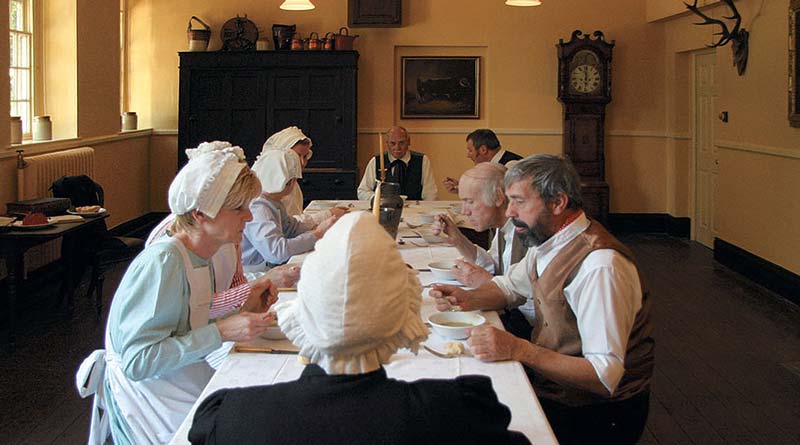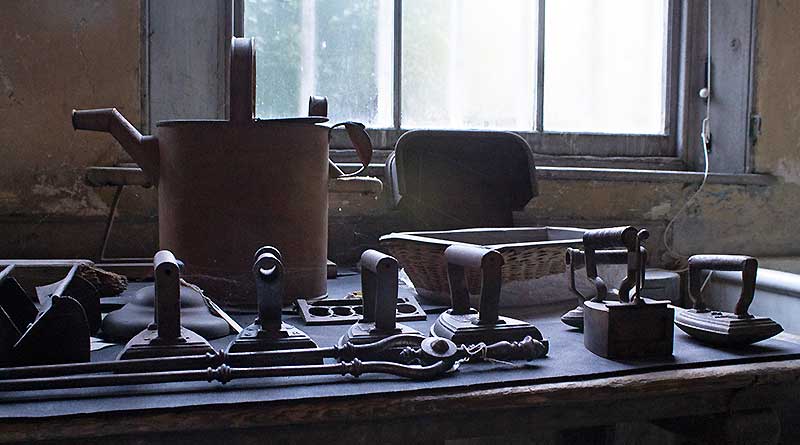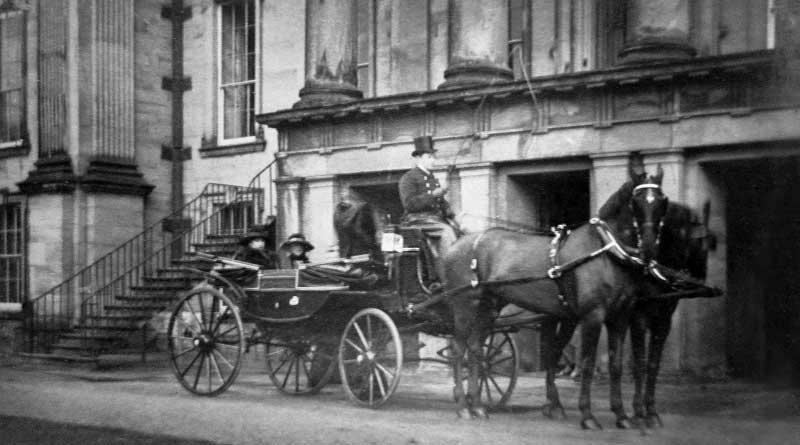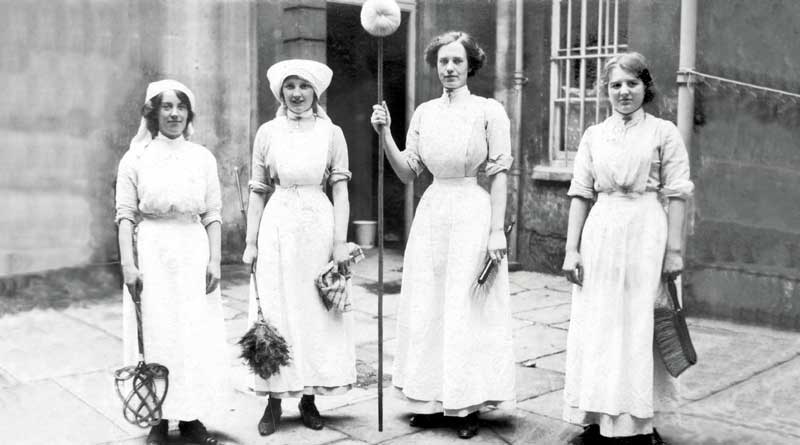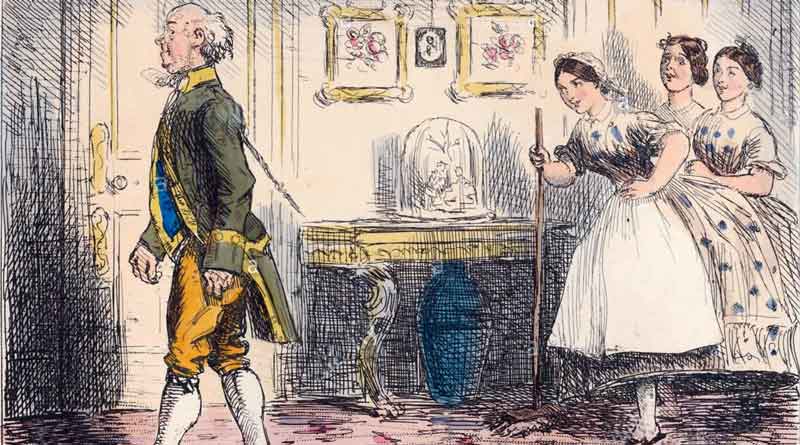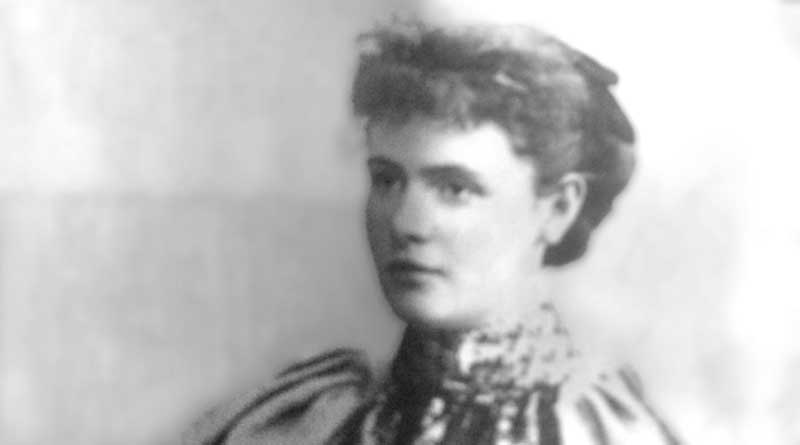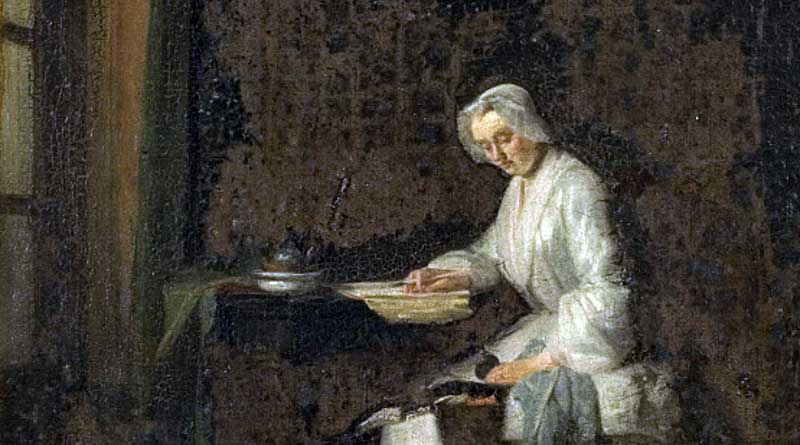-
/
This wonderful photograph was recently found in a drawer at Calke Abbey. It is proving to be quite a mystery. It had at some time in the past been torn in half, but Bryan has done an excellent job of digitally repairing it. The elderly lady in black at the front of the photo bears…
-
/
Why is it that we are so interested in the lives of servants? Quite a high percentage of visitors to Calke Abbey have a polite and passing interest in the Harpur Crewe’s, but what they really want to know about is the servants. How many there were. What their jobs entailed and how they were…
-
/
In Victorian times, if you chose a life of service you accepted a regular wage, hard work, and a place within a strict servant hierarchy. It was perhaps no different from a business model nowadays. Everyone knew their place and their position was reflected in their wages. The highest-paid servant at Calke was (and this…
-
/
Hunting, of course, has been going on since man first walked the earth. It was done by humans for meat, recreation, and to remove predators. There are many accounts of Henry VIII going hunting, usually for deer in the Royal Parks. The aristocracy followed royal fashion and created their own deer parks on their estates…
-
/
People had very fixed ideas about women who did laundry work. ‘It was a low technology and a low skill activity requiring hard physical labour rather than dexterity or technical ability’. And after all, any woman could do laundry. Along with the position of scullery maid, the 3rd or 4th laundry maid tended to be…
-
/
The gardens and landscaping at Calke have changed over the years according to fashion, and the tastes and needs of each Baronet. The large, very formal gardens at the East Front of the house were lost to fashionable naturalistic landscaping before the Victorian era and the ‘Hanging Gardens’ between the house and the church were…
-
/
‘Caring for the heir and the spare.’ In well-heeled families with small children, a nanny or nurse was an essential employee. It was a position of great trust and responsibility.[1] ‘Nurse’ was their official title (always described as this on the Census Returns for example), but informally by the family, and the children, they were…
-
/
Houses and estates the size of Calke needed a lot of managing by someone with skills way beyond that of the owners. The two jobs were usually carried out by different men. However, occasionally, depending on circumstances such as the size of the estate, or what the finances would allow, it would be done by…
-
/
Up until the early years of the 20th Century, the only way to travel for an upper middle class or upper-class family was by horse and carriage. The demands for a good, experienced Coachman were high, but the role was so much more than just being able to drive a coach and horses. Coachman came…
-
/
Gamekeepers have been needed ever since hunting for sport became popular. To begin with, it was all about poaching. For example, Henry VIII didn’t want anyone shooting his deer before he had to so he employed Gamekeepers to catch anyone who tried to. Later it needed to be legalised so in 1671 an Act of…
-
/
The stables and stable staff at Calke have always been an important part of the Estate. Not only because before combustion engines, horses were the only way to travel long distances in a comparatively short time, but also because for a period of time in the 18th Century Calke ran a very successful race-horsing stable.…
-
/
The Housemaid was ‘a foot soldier in the Victorian household’s constant war against grime.’[1] It tended to be a tough physical job more suited maybe to a fit young man, and not the 14-year old girls who started at the bottom rung of the service ladder, although a large, landed gentry house like Calke Abbey…
-
/
The Stillroom in a large country house gets its name from its original use as a place where medicines and scents were distilled.[1] Indeed in the Calke Archive there is a medicinal recipe book from the 18th Century, hand written, which the Stillroom maid would have to follow including oils, potions and herbal remedies. In…
-
/
The peacocks among domestics, footmen were blatantly employed for their good looks and suave manners. It even went so far as you received a higher wage the taller you were. In the Calke Archive, the application letters from prospective footmen are the only ones that include their height. William Bown, a footman in 1850 earned…
-
/
The mistress of any large, wealthy household needed to maintain an immaculate appearance and she needed help to do this.[1] For a start, it would have been almost impossible to dress herself, given the corset lacing, fiddly fastenings and voluminous fabrics of a large swathe of Fashion periods. Hence the need for a Ladies Maid.…
-
/
Of all the servants in a household such as Calke, the Cook was the one that needed to be kept sweet. ‘Acquiring, accommodating and retaining a decent cook was a constant source of worry.’[1] A Victorian or Edwardian household totally relied on their cook. No sending out for takeaway’s in those days and no respectable…
-
/
The Governess was almost always a well-educated, middle-class young lady. I would stick my neck out here and say that almost no middle-class lady chose to be a governess. In most cases, they were destined for marriage to an equally well-placed young man, or daddy was rich enough to take care of them. However, the…
-
/
If the Butler was the outward sign of a house organised and well run, the Housekeeper was the engine who kept everything running. In my opinion, even though they were paid less than a Butler, the housekeeper had more responsibility. To become a housekeeper you needed experience in one of the lower ranks of service.…
-
/
Becoming a Butler was the pinnacle of a man’s career in service. Generally, it was the highest-paid role (although Calke demonstrates that was not always the case, as the Head Gardener took that position) and you were definitely in charge. It was usual to start as a Footman and work your way up, however you…
Servants
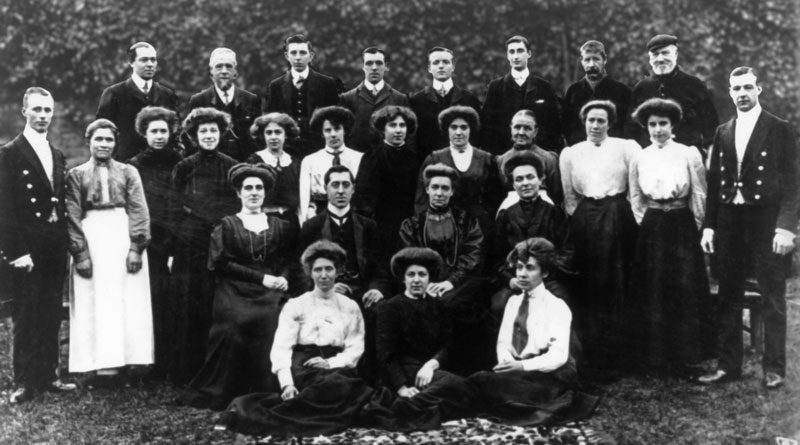
Karen Krefts ‘Servants’ series is a powerful insight into the lives of those who toiled ‘below stairs’.


